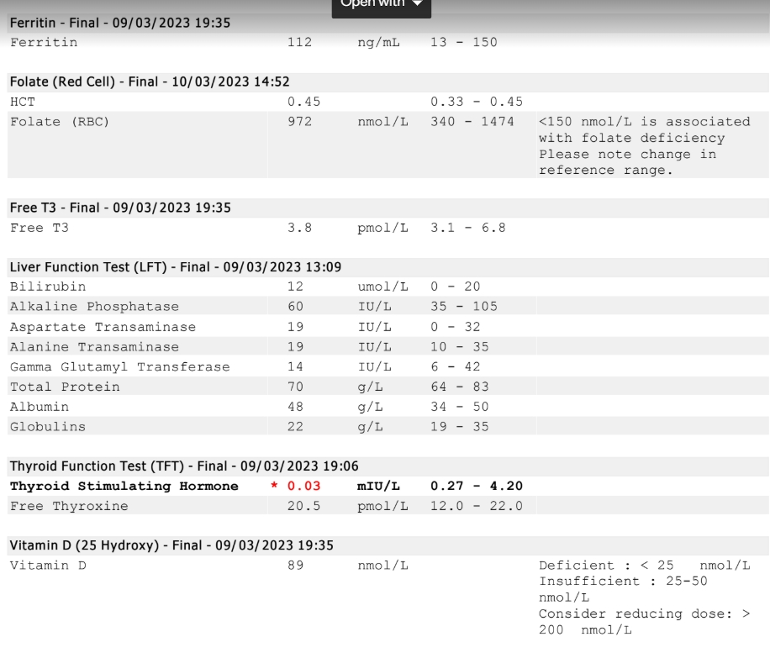Hi everyone,
Hope you're all well. I have started getting palpitations, quite bad where it continues for over 5 minutes multiple times a day.
I am on 100/125mcg Levo and 17.5mcg of compounded slow release T3. I have been on this dose for a few weeks and the past two days I'm experiencing the palpatations and wondered if anyone had anything similar that could shed some light?
My latest results from 9th of March - the T3 hasn't moved even though I increased from 15mcg to 17.5mcg and instead of 24 hours before testing, I took my T3 at 13h00 the day before, so 18 hours.
My folate has increased 👍
Many thanks
